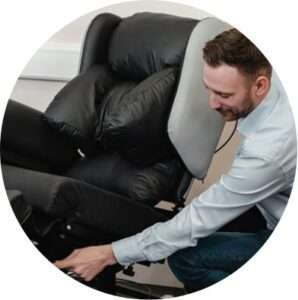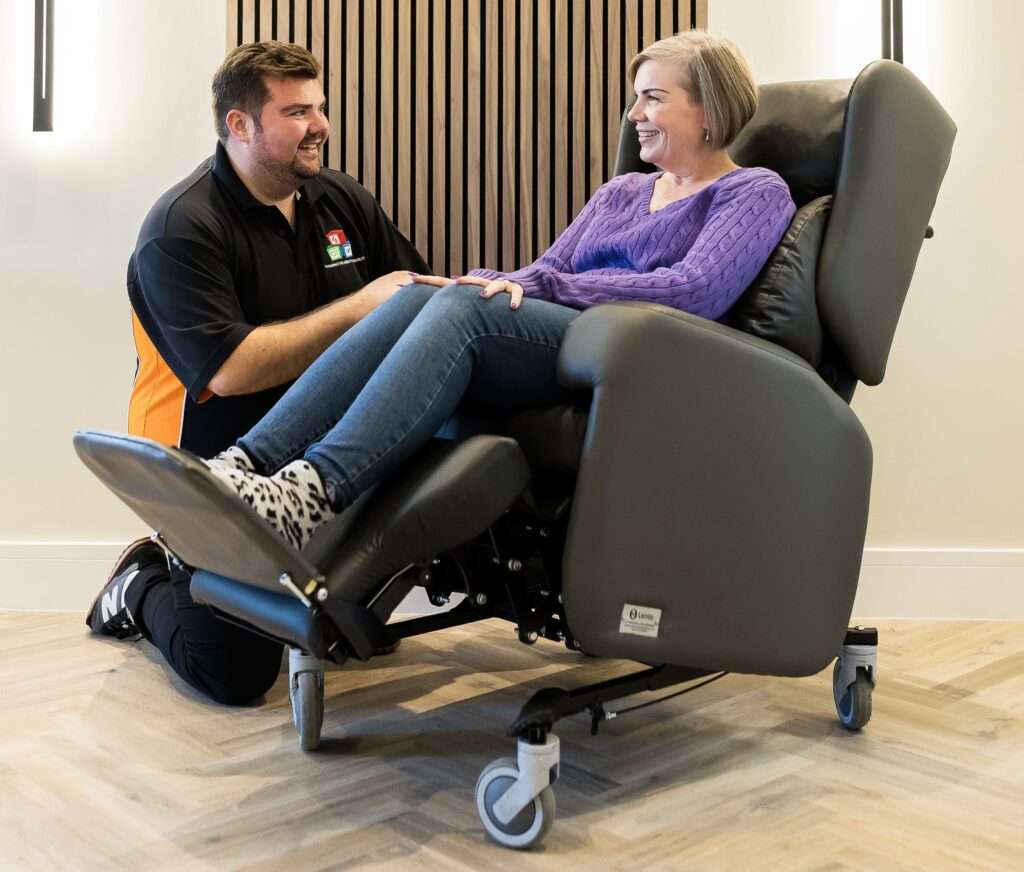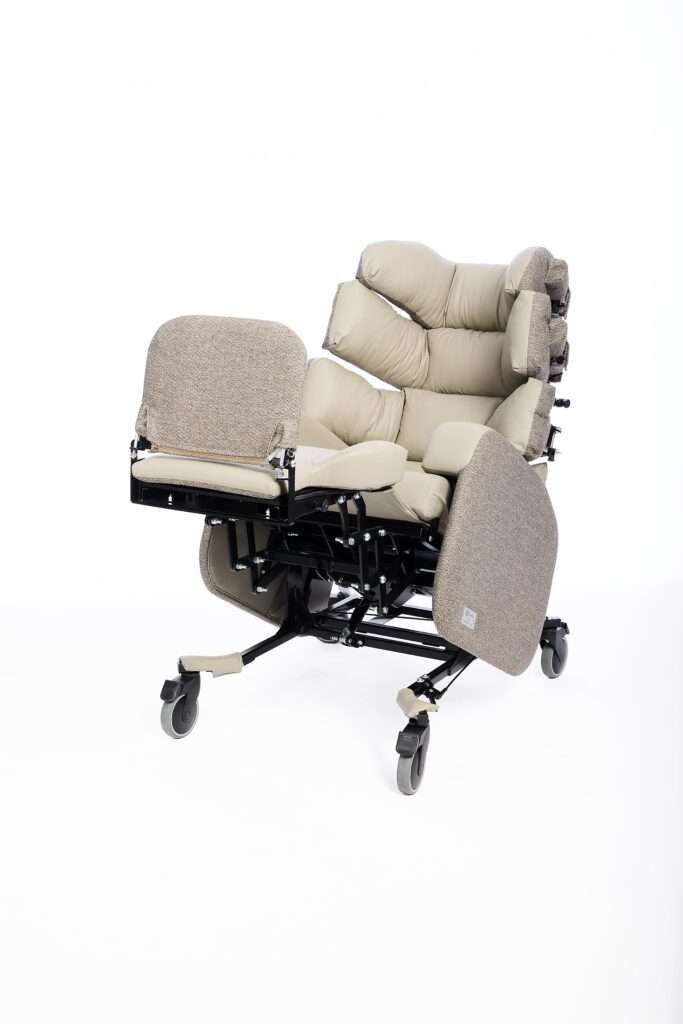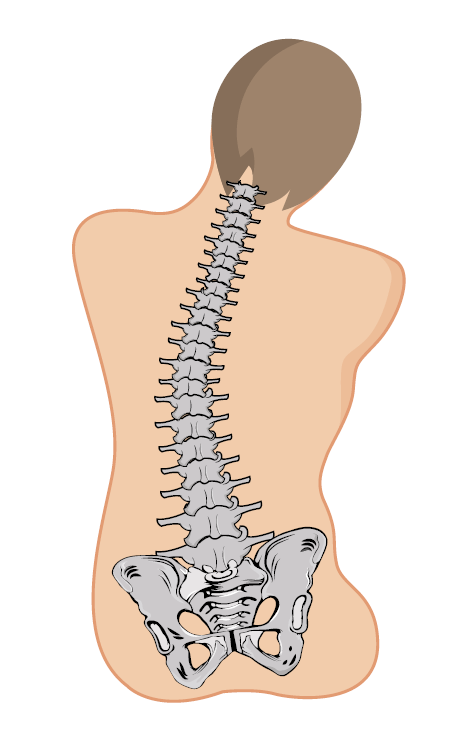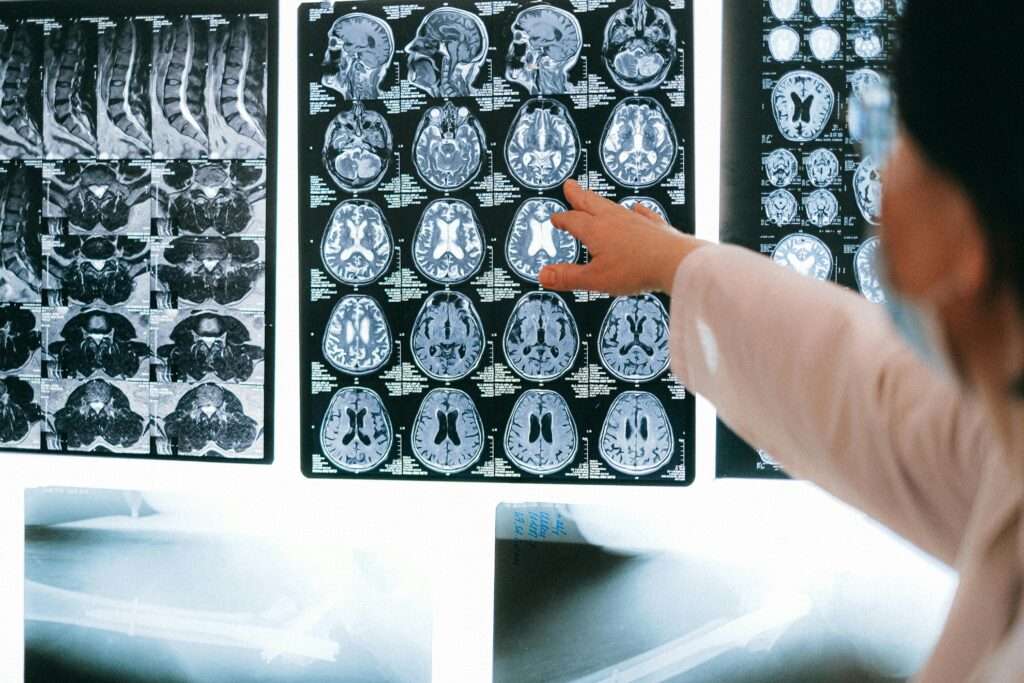Neurology departments in hospitals are dedicated to diagnosing, treating, and managing disorders of the nervous system. Patients seen in these departments often suffer from conditions such as stroke, multiple sclerosis, Parkinson’s disease, and spinal cord injuries, which can severely impact their mobility and posture. For these individuals, standard hospital chairs may not provide the necessary support, leading to discomfort, pressure sores, and exacerbation of their conditions.
Specialist seating is designed to address these challenges by offering customised support tailored to the patient’s needs. These chairs help in reducing the risk of secondary complications, improve patient outcomes, and enhance overall care quality in hospital neurology wards.
Jump straight to…
Understanding the Unique Needs of Neurology Patients
Patients with neurological conditions often experience a range of symptoms that affect their ability to sit comfortably for extended periods. Some common issues include muscle weakness, spasticity, involuntary movements, and impaired balance. These symptoms can make it difficult for patients to maintain a stable sitting posture, increasing the risk of falls or injury.
In addition to physical discomfort, patients may also experience cognitive impairment, such as memory loss or confusion, which can further complicate their ability to sit safely in standard hospital chairs. For instance, a patient with dementia might not understand how to properly use a chair’s adjustment features, leading to unsafe situations.
Specialist seating addresses these challenges by offering enhanced stability, support, and adjustability, ensuring that patients are positioned safely and comfortably. This tailored approach helps in managing the specific symptoms of each patient, promoting better health outcomes and a higher quality of life.
Key Features of Effective Seating for Neurology Departments
When selecting specialist seating for a hospital neurology department, several key features should be considered to ensure the chairs meet the diverse needs of patients. Here are some essential elements to look for:
- Adjustability and Customisation
Specialist chairs should offer a high degree of adjustability to accommodate the varying needs of neurology patients. Features like adjustable seat height, depth, and tilt can help in achieving the optimal seating position for each individual. Additionally, customisable supports such as lumbar cushions, lateral supports, and headrests, can provide targeted relief for specific areas of the body.
- Pressure Redistribution
Patients with limited mobility are at an increased risk of developing pressure ulcers due to prolonged sitting. Specialist seating solutions often incorporate pressure-relieving cushions and materials that help distribute weight evenly across the seat surface. This feature is crucial for preventing pressure sores and ensuring patient comfort during long periods of sitting.
- Stability and Safety
Given the physical and cognitive challenges faced by neurology patients, stability and safety are paramount in specialist seating. Chairs should be designed with a wide base, non-slip surfaces, and secure locking mechanisms to prevent tipping or sliding. Additionally, sturdy armrests and footrests can assist patients in safely transferring in and out of the chair.
- Ease of Use
For both patients and healthcare providers, ease of use is a critical consideration. Specialist chairs should be simple to operate, with intuitive controls. This is especially important in hospital neurology departments, where patients may have limited physical or cognitive abilities. Chairs that are easy to clean and maintain also contribute to a more hygienic and efficient care environment.
- Mobility Features
In some cases, patients may need to be transported within the hospital while seated. Specialist seating solutions that are equipped with wheels and braked castors allow for safe and smooth movement, ensuring that patients remain comfortable and stable during transit.
Specialist Seating for Different Neurological Conditions
With these essential features in mind, this section looks at some of the common conditions found in neurology wards, and which chairs can help.
Huntington’s Disease
The Lento Neuro was developed specifically for patients with Huntington’s Disease. Chorea movements are a common symptom seen in patients in the advanced stages of this disease.
A key feature of the Lento Neuro is the cocooned-shaped seat that ‘hugs’ the patient, making them feel safe and secure and reducing their ataxic movements.
The heavy-duty steel frame and low centre of gravity give maximum security and can withstand the most vigorous ataxic movements, and the chair is practically immovable when all braked castors are on.
Acquired Brain Injury
Paralysis and involuntary movements are two common physical side effects of injury to the motor cortex or cerebellum area of the brain.
When it comes to seating for people who are paralysed due to spinal cord or brain injury, there are two key issues the patient will need help with:
Pressure sores
People with paralysis are unable to reposition themselves to alleviate pressure, causing pressure to build-up in the areas that are in constant contact with the chair. Without assistance, can lead to development of pressure sores. The tilt-in-space feature in our Lento chair range tilts the patient back to reposition them throughout the day. This redistributes their body weight, so pressure doesn’t build up in one particular area.
Personal care
Patients with severe paralysis often need assistance with personal care tasks such as transfers, toileting and washing. A chair like the Lento Care Chair that is compatible with hoists makes personal care routines far easier.
If a patient isn’t hoisted but needs to side-transfer from their chair to a toilet or wheelchair, the Lento chairs also have removable armrests.
Multiple Sclerosis
Multiple Sclerosis is an autoimmune disorder that confuses messages transmitted by the spinal cord, which can cause muscle spasms, cramps, numbness, and weakness on one side of the body, making it difficult to maintain a stable sitting posture.
The Lento Neuro has an angled seat rake that helps MS patients maintain a good midline position. The soft, yielding fabric helps relieve pressure if the patient has lost feeling in certain areas of the body, and does not have enough biofeedback to reposition themselves.
The sitting position can be easily adjusted by reclining the backrest up to 38 degrees, to relieve pain and stiffness.
The Lento Care Chair has fully adjustable seat dimensions and multiple backrest options to suit any MS patient. Lateral backrests provide support to MS patients wo have muscle weakness on one side, and thoracic backrests can assist patients who have lost thorax strength.
Parkinson’s Disease
People with Parkinson’s Disease often have problems sliding forward in their chair. Resting tremors and a weak core make it harder for them to maintain an upright position when seated, resulting in a tendency to slump and slide forwards. Having a raked seat angle makes it harder for them to slide forwards, because their hips and pelvis are tilted towards the backrest in a more stable position.
When looking for rise and recline chairs to support someone with Parkinson’s Disease, Variable Angle Lift (VAL) is another useful feature to look out for. It is a setting that allows you to alter the angle that the seat rises, helping them balance and feel more secure when getting to their feet.
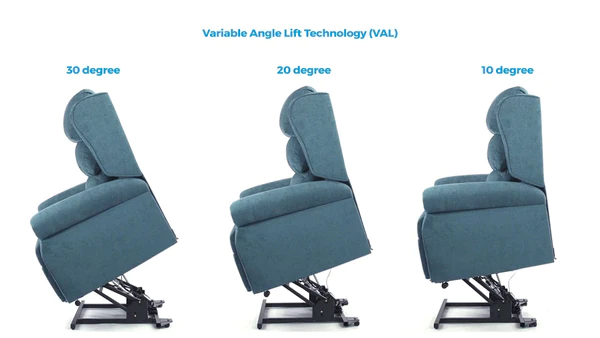
Variable Angle Lift
The Impact of Specialist Seating on Patient Outcomes
Investing in high-quality specialist seating for neurology departments can have a significant positive impact on patient outcomes. By providing appropriate support and comfort, these chairs help reduce the risk of complications such as pressure ulcers, falls, and musculoskeletal pain. Moreover, they enable patients to participate more fully in therapy and rehabilitation, which can lead to improved functional abilities and a faster recovery process.
Additionally, the use of specialist seating can enhance the overall patient experience by promoting dignity and independence. When patients feel secure and comfortable, they are more likely to engage in social interactions and activities, which are vital for mental and emotional well-being.
Get Expert Advice



